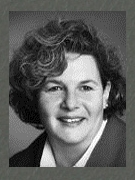
Ulrike Jessner-Schmid
Universität Innsbruck / University of Pannonia, Veszprem, Hungary
Keynote: Multilingual awareness: A developmental perspective
According to a Dynamic Systems /Complexity Theory perspective, as applied by Herdina & Jessner in their Dynamic Model of Multilingualism (2002), metalinguistic awareness presents a crucial part of the so-called M(ultilingualism)-factor, an emergent property of the multilingual system which only develops in multilingual - in contrast to bi- and monolingual - systems. The multilingual system is not only in constant change but the multilingual learner also develops certain skills and abilities that the mono- and the bilingual speaker lacks. Therefore multilingual awareness has been identified as a key variable of multilingual development and multilingual proficiency. It is assumed to consist of multiple components such as language learning and management skills, enhanced monitor functions, enhanced metalinguistic and cross-linguistic awareness. What these skills and abilities have in common is their relatedness to a heightened level of metalinguistic awareness in multilingual learners and users, which can be seen as a function of the interaction between the systems.
In this presentation the development, that is the quality changes of multilingual awareness will be focused on. In particular it will be argued that, based on evidence from a number of studies at Innsbruck university, multilingual awareness can be trained in institutional settings.
Short bio:
Ulrike Jessner is Professor at the University of Innsbruck (Austria) and the University of Pannonia, Veszprem (Hungary). She has published widely in the field of bilingualism and multilingualism with a special focus on the acquisition of English in multilingual contexts. She is the co-author of A Dynamic Model of Multilingualism (with Philip Herdina in 2002) and Linguistic Awareness of Multilinguals: English as a Third Language (2006). She is also founding editor of the International Journal of Multilingualism and the book series Trends in Applied Linguistics (with Claire Kramsch from Berkeley University) Furthermore she has been engaged in the development of the research area of third language acquisition/multilingualism as a founding member and former President of the International Association of Multilingualism.
A note on multilingualism:
The development of a multilingual system is characterized by its non-linearity, reversibility, stability, interdependence, complexity and change of quality. Multilingual systems are adaptive and dynamic, which means that they are able to change depending on the perceived communicative needs of multilingual individuals. Language choices are psychologically and socially determined and are the driving force of language learning and use. Language development of multilinguals includes both acquisition and attrition processes.
Sponsored by





